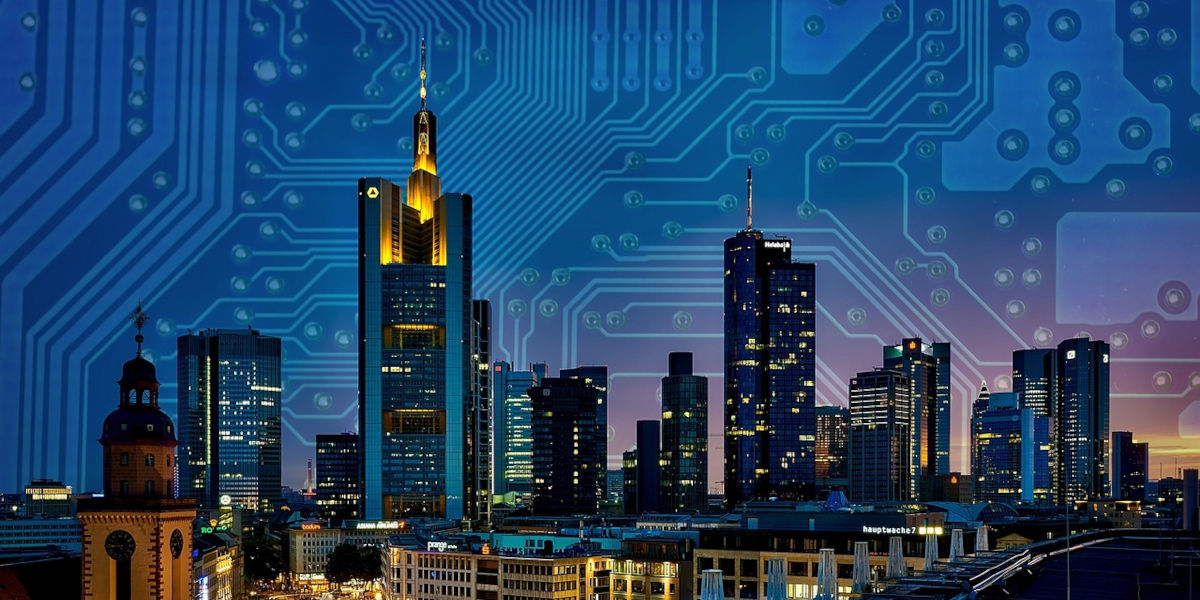There's been an increasing buzz around the term 'smart cities', yet many are left questioning 'smart cities explained, what does it mean, really?' So, let's demystify this concept while shedding light on the benefits of smart cities and investigating what makes a city smart. Prepare to unravel an intriguing mix of technology, urban planning, and sustainability, intended to elevate the quality of life in urban settings.
Smart Cities Explained: The Genesis of a New Urban Era
The 'smart city' umbrellas a framework that is far more profound than what meets the eye. It transgresses beyond the usual comprehension of high-tech infrastructure and speedy Wi-Fi. A smart city encapsulates a vision of urban living that seamlessly integrates technology into the fabric of the city to meet the social, economic, and environmental needs of its residents.
Smart cities are not a distant futuristic concept but rather a necessity arising from expanding urban populations, striving for sustainable progress. Against the backdrop of growing urban health concerns, dwindling resources, and escalating pollution levels, the advent of smart cities emerges as a promising solution. By leveraging technology, smart cities aim to optimize urban services while reducing environmental footprint and improving residents' quality of life.
Benefits of Smart Cities: Enhancing Urban Life
The benefits of smart cities have the potential to transform urban living radically. First off, smart cities promise to make urban environments more manageable, living more comfortable, and cities more habitable. They accomplish this by integrating digital technology and IoT (Internet of Things) into core city functions and services to manage resources effectively and efficiently.
Resource management is at the heart of smart cities. It encapsulates energy use, water use, waste management, and even streamlined public transport systems. Bestowed with sensors and connected technology, the infrastructure of smart cities can interact with the urban environment, monitoring and analyzing every sector's performance. This level of insight allows for preventative maintenance, optimal resource allocation, and infrastructure development, making cities more livable and sustainable.
What Makes a City 'Smart'?
Now, we're at the crux of the discourse: What makes a city smart? The transformative journey from a 'city' to a 'smart city' isn't merely about revamping physical infrastructure. It's a multi-pronged process involving several key elements of transformation, such as technological innovation, data-driven decision making, robust governance, and most importantly, citizen participation.
At the core of a smart city lies technology. Smart cities harness the power of emerging technologies such as Artificial Intelligence (AI), Internet of Things (IoT), and Big Data to redefine urban infrastructure. These technologies help streamline urban services like public transportation, utilities, and waste management, promising operational efficiency, cost-effectiveness, and reduced environmental impact. They also entail the development of digitized public services that ensure fast, efficient, transparent, and inclusive urban governance.
Understanding Smart Cities
A 'Smart City' is a city that leverages Internet of Things (IoT) devices and data collection sensors to gather data and use insights gained from that data to manage resources and services efficiently. This is accompanied by a higher commitment to providing better city infrastructure while ensuring a cleaner environment and improved city services.
This data can be collected from a myriad of sources including citizens, devices, buildings and assets that are then processed and analyzed to monitor and manage traffic and transportation systems, water supply networks, wastage management, information systems, schools, libraries, hospitals, and other community services.
But, what is the actual driving force behind a smart city? It’s none other than technology advancement, primarily the Internet of Things (IoT), an innovative solution that makes a network of physical devices, vehicles, and buildings by using sensors and software to collect and exchange data. With these sophisticated technologies, smart cities can deliver various services more smartly and efficiently, making the inhabitants’ life more comfortable.
Key Benefits of Smart Cities
There are numerous benefits to the advent and development of smart cities, but some of the most impactful ones include:
- Enhanced Citizen Engagement: Through the use of digital technology, public services become more accessible allowing citizens to interact more efficiently with local government.
- Improved Public Safety: The use of smart technology can greatly aid law enforcement and public safety officials, through more efficient emergency response systems or even proactive crime monitoring and detection.
- Environmental Benefits: Smart Cities use resources more efficiently, leading to lower pollution levels and improved energy management. This greatly helps in fulfilling environmental sustainability goals.
- Economic Growth: Smart Cities can lead to economic growth by attracting investments and generating jobs, driven by technology and innovation.
What Makes a City 'Smart'?
Transforming into a smart city is not about the deployment of specific technologies. A city becomes 'smart', when it uses technology to transform its core systems through improved services for citizens, better use of resources, and reduced environmental impact. The use of smart technology in everyday services can profoundly change the way citizens interact with their city, improving their quality of life while fostering sustainability.
In conclusion, a Smart City is more than just a city with advanced technology. It’s about using technology as a tool to create sustainable and efficient urban areas that improve the quality of life for all residents. A well-planned Smart City can serve as a powerful engine of economic growth, while also delivering significant environmental benefits. But for a city to become 'smart', a systematic and comprehensive approach is needed, incorporating the various parts of the public sector, private sector, and citizen involvement in designing and implementing smart solutions.




